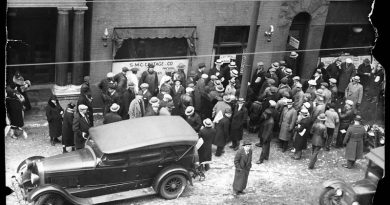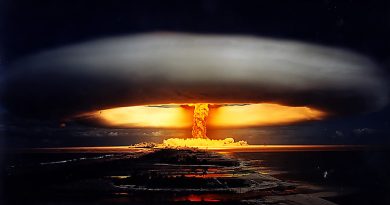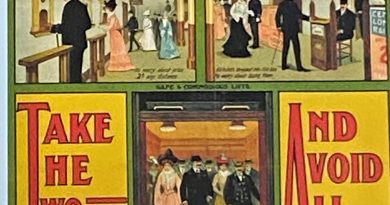Lord Kitchener and the Battle of Obdurman
Kitchener was credited in 1898 for having won the Battle of Omdurman and securing control of the Sudan, for which he was made Baron Kitchener of Khartoum.
For the previous decade and a half the country had been ruled by the Islamic Mahdist Army under strict Sharia principles after they had overthrown the Anglo Egyptian regime which had run Sudan after the collapse of the Ottoman Empire.
In 1896, the British Prime Minister, Lord Salisbury, was also concerned with keeping France out of the Horn of Africa. A French expedition had left Dakar in 1896 with the aim of conquering the Sudan, seizing control of the Nile as it flowed into Egypt, and forcing the British out of Egypt; thus restoring Egypt to the place within the French sphere of influence that it had had prior to 1882.
Salisbury feared that if the British did not conquer the Sudan, the French would. He had supported Italy’s ambitions to conquer Ethiopia in the hope that the Italians would keep the French out of Ethiopia. The Italian attempt to conquer Ethiopia, however, was going very badly by early 1896, and ended with the Italians being annihilated at the Battle of Adowa in March 1896.
In March 1896, with the Italians failing and the extreme Islamic Mahdist state threatening to conquer Eritrea, Salisbury ordered Kitchener to invade northern Sudan, ostensibly for the purpose of distracting the Ansar (whom the British called “Dervishes”) from attacking the Italians.
Kitchener won victories at the Battle of Ferkeh in June 1896 and the Battle of Hafir in September 1896, earning him national fame in the United Kingdom .
Kitchener’s cold personality and his tendency to drive his men hard made him widely disliked by his fellow officers. One officer wrote about Kitchener in September 1896: “He was always inclined to bully his own entourage, as some men are rude to their wives. He was inclined to let off his spleen on those around him”
Kitchener had served on the expedition commanded by General Wolseley 14 years earlier to rescue the beleaguered General Gordon at Khartoum, and was convinced that the expedition failed , and Gordon killed by the Mahdists in the Seige of Khartoum because Wolseley had used boats coming up the Nile to bring his supplies.
Kitchener built a railroad to supply the Anglo-Egyptian army instead .
Kitchener achieved further successes at the Battle of Atbara in April 1898, and then the final Battle of Omdurman in September 1898.
After marching to the walls of Khartoum, he placed his army into a crescent shape with the Nile to the rear, together with the gunboats in support. This enabled him to bring overwhelming firepower against any attack of the Ansar from any direction.
At about 5 a.m. on 2 September 1898, a huge force of Ansar, under the command of the Khalifa himself, came out of the fort at Omdurman, marching under their black banners inscribed with Koranic quotations in Arabic. The correspondent of The Daily Telegraph, wrote: “ It was not alone the reverberation of the tread of horses and men’s feet I heard and seemed to feel as well as hear, but a voiced continuous shouting and chanting-the Dervish invocation and battle challenge “Allah e Allah Rasool Allah el Mahdi!” they reiterated in vociferous rising measure, as they swept over the intervening ground”
Kitchener had the ground carefully studied so that his officers would know the best angle of fire, and had his army open fire on the Ansar first with artillery, then machine guns and finally rifles as the enemy advanced.
A young Winston Churchill, serving as an army officer, wrote of what he saw: “A ragged line of men were coming on desperately, struggling forward in the face of the pitiless fire – black banners tossing and collapsing; white figures subsiding in dozens to the ground … valiant men were struggling on through a hell of whistling metal, exploding shells, and spurting dust – suffering, despairing, dying”. By about 8:30 am, much of the Dervish army was dead.
Viewing the battlefield from horseback Kitchener commented: “Well, we have given them a damn good dusting”.As the British and Egyptians advanced in columns, the Khalifa attempted to outflank and encircle the columns; this led to desperate hand-to-hand fighting. Churchill wrote of his own experience as the 21st Lancers cut their way through the Ansar: “The collision was prodigious and for perhaps ten wonderful seconds, no man heeded his enemy. Terrified horses wedged in the crowd, bruised and shaken men, sprawling in heaps, struggle dazed and stupid, to their feet, panted and looked about them”. The Lancers’ onslaught carried them through the 12-men-deep Ansarline with the Lancers losing 71 dead and wounded while killing hundreds of the enemy. Following the annihilation of his army, the Khalifa ordered a retreat and early in the afternoon, Kitchener rode in triumph into Omdurman and immediately ordered that the thousands of Christians enslaved by the Ansarwere now all free people.
Kitchener lost fewer than 500 men while killing about 11,000 and wounding 17,000 of the Ansar. The Telegraph correspondent summed the general mood of the British troops: “At Last! Gordon has been avenged and justified. The dervishes have been overwhelming routed, Mahdism has been “smashed”, while the Khalifa’s capital of Omdurman has been stripped of its barbaric halo of sanctity and invulnerability.
Kitchener promptly had the Mahdi’s tomb blown up to prevent it from becoming a rallying point for his supporters, and had his bones scattered. Queen Victoria, who had wept when she heard of General Gordon’s death, now wept for the man who had vanquished Gordon, asking whether it had been really necessary for Kitchener to desecrate the Mahdi’s tomb.The body of the Mahdi was disinterred and beheaded.This symbolic decapitation echoed General Gordon’s death at the hands of the Mahdist forces in 1885. The headless body of the Mahdi was thrown into the Nile.Kitchener kept the Mahdī’s skull and it was rumoured that he intended to use it as a drinking cup or ink well.In a letter to his mother, Churchill wrote that the victory at Omdurman had been “disgraced by the inhuman slaughter of the wounded and … Kitchener is responsible for this”.
There is no evidence that Kitchener ordered his men to shoot the wounded Ansar on the field of Omdurman, but he did give a “mixed message”, to his troops saying that mercy should be given, while at the same time saying “Remember Gordon” and that the enemy were all “murderers” of Gordon.
The victory at Omdurman made Kitchener into a popular war hero, and gave him a reputation for efficiency and as a man who got things done.
The shooting of the wounded at Omdurman, along with the desecration of the Mahdi’s tomb, gave Kitchener a reputation for brutality that was to dog him for the rest of his life, and posthumously.
Kitchener became Governor-General of the Sudan in September 1898, and began a programme of restoring good governance.
As Chief of Staff (1900–1902) in the Second Boer War he played a key role in the conquest of the Boer Republics. He was then promoted to commander-in-chief – by which time Boer forces had taken to guerrilla fighting and British forces imprisoned Boer civilians in concentration camps.
His term as Commander-in-Chief (1902–1909) of the Army in India saw him quarrel with another eminent proconsul, the Viceroy Lord Curzon, who eventually resigned.
Kitchener then returned to Egypt as British Agent and Consul-General (de facto administrator).
In 1914, at the start of the First World War, Kitchener became Secretary of State for War, a Cabinet Minister. One of the few to foresee a long war, lasting for at least three years, and also having the authority to act effectively on that perception, he organised the largest volunteer army that Britain had seen, and oversaw a significant expansion of materiel production to fight on the Western Front. Despite having warned of the difficulty of provisioning for a long war, he was blamed for the shortage of shells in the spring of 1915
On 5 June 1916, Kitchener was making his way to Russia on HMS Hampshire to attend negotiations with Tsar Nicholas II when in bad weather the ship struck a German mine 1.5 miles (2.4 km) west of Orkney, Scotland, and sank. Kitchener was among 737 who died; he was the highest ranking British officer to die in action in the entire war.



